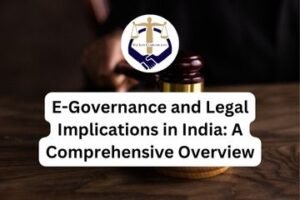Marriage Registration in India: A Comprehensive Guide 2024
Table of Contents
- 1. Introduction to Marriage Registration in India
- 2. Legal Framework for Marriage Registration
- 3. Eligibility for Marriage Registration
- 4. Procedure for Marriage Registration
- 5. Importance of Marriage Registration
- 6. Documents Required for Marriage Registration
- 7. Challenges and Issues in Marriage Registration
- 8. Conclusion
Marriage registration in India is a crucial legal process that provides official recognition to a union between two individuals. The registration process not only confers legal rights and obligations but also ensures protection for both parties in various legal scenarios. This article delves into the various aspects of marriage registration in India, including the legal framework, procedures, importance, and challenges.
1. Introduction to Marriage Registration in India
Marriage registration is the process by which a marriage is legally recognized by the government of India. Although marriage can be solemnized through traditional rituals and customs, registration ensures that the union is officially documented. In India, marriage registration is governed by various laws depending on the religion and choice of the individuals.
A registered marriage provides a legal document that can serve as proof of the marital relationship, which is crucial for several legal, social, and financial reasons. Additionally, it can prevent issues such as child marriage, dowry disputes, and fraudulent claims.
2. Legal Framework for Marriage Registration
In India, marriage registration is governed by several acts based on the religion of the individuals involved, as well as their choice of legal framework.
The Hindu Marriage Act, 1955
The Hindu Marriage Act is applicable to Hindus, Buddhists, Jains, and Sikhs. It governs the conditions for a valid Hindu marriage, including age, consent, prohibited relationships, and monogamy. Although registration is not mandatory under this act, it is highly recommended, as it serves as legal proof of marriage.
The Special Marriage Act, 1954
The Special Marriage Act, 1954, allows individuals of any religion to register their marriage without the requirement of religious ceremonies. This act is secular in nature and is often used for interfaith marriages. Unlike the Hindu Marriage Act, the Special Marriage Act mandates marriage registration and provides a standardized process for couples regardless of their religious beliefs.
Other Acts Governing Marriage in India
- Indian Christian Marriage Act, 1872: Governs marriage among Christians.
- Parsi Marriage and Divorce Act, 1936: Applies to marriages among Parsis.
- Muslim Personal Law: While Muslims are not legally required to register their marriage, they can do so under the Special Marriage Act or by obtaining a Nikah Nama (marriage certificate) from the Qazi.
3. Eligibility for Marriage Registration
To be eligible for marriage registration in India, both individuals must meet the following criteria:
- Age Requirement: The minimum age for marriage is 18 years for women and 21 years for men.
- Marital Status: Both individuals must be unmarried, or if previously married, they must be legally divorced or widowed.
- Consent: Both parties must willingly consent to the marriage.
- Prohibited Relationship: Marriage must not occur within prohibited degrees of relationship, unless permitted by custom or personal law.
4. Procedure for Marriage Registration
The procedure for marriage registration varies depending on the legal act under which the marriage is registered.
Registration under the Hindu Marriage Act
- Application: The couple must submit a marriage registration application at the Sub-Registrar’s office.
- Document Verification: Relevant documents, such as identity proof, address proof, and photographs, must be submitted.
- Witnesses: At least two witnesses must be present for verification.
- Certificate Issuance: Upon verification, the marriage certificate is issued on the same day.
Registration under the Special Marriage Act
- Notice of Intended Marriage: The couple must submit a notice of their intended marriage to the Sub-Registrar’s office, where at least one party has resided for a minimum of 30 days.
- Public Notice: The notice is displayed publicly for 30 days, allowing objections.
- Resolution of Objections: If no objections are raised within the 30-day period, the couple can proceed with the registration.
- Marriage Solemnization: The couple, along with three witnesses, must be present before the marriage officer to sign the marriage certificate.
- Issuance of Marriage Certificate: The marriage officer will issue the certificate after due process.
5. Importance of Marriage Registration
Marriage registration provides several important benefits:
- Legal Proof: It serves as legal proof of marriage and is required for various legal and administrative processes.
- Protection of Rights: It protects the rights of both parties in issues related to inheritance, maintenance, child custody, and property.
- Insurance and Financial Benefits: It is essential for claiming insurance benefits, joint bank accounts, and other financial matters.
- Prevention of Fraud: Registration reduces the possibility of fraudulent marriages and helps prevent issues like polygamy.
- International Recognition: A marriage certificate is often required for international travel, especially for visa applications.
6. Documents Required for Marriage Registration
The documents generally required for marriage registration include:
- Identity Proof: Aadhaar card, Voter ID, Passport, or Driving License.
- Address Proof: Utility bills, Ration card, or Passport.
- Date of Birth Proof: Birth certificate, school certificate, or passport.
- Marriage Invitation Card: If available, this can be submitted as supporting evidence.
- Photographs: Passport-sized photos of the couple.
- Affidavit: An affidavit declaring the marital status, nationality, and consent of both parties.
- Witnesses: Three witnesses with valid identity proof.
7. Challenges and Issues in Marriage Registration
Despite the benefits, marriage registration in India faces several challenges:
- Lack of Awareness: Many couples, especially in rural areas, are unaware of the importance of marriage registration.
- Social and Religious Beliefs: Traditional communities may oppose marriage registration due to religious beliefs.
- Bureaucratic Hurdles: The process can be time-consuming and challenging, with documentation requirements and verification procedures.
- Privacy Concerns: The publication of intended marriages under the Special Marriage Act raises privacy concerns for interfaith couples.
- Corruption: Corruption in the registration process can cause delays and unnecessary expenses.
8. Conclusion
Marriage registration in India is an essential process that provides legal recognition to marital unions, safeguarding the rights of individuals and ensuring social and financial security. Despite its significance, challenges such as lack of awareness, bureaucratic obstacles, and cultural beliefs continue to hinder the widespread adoption of marriage registration. However, with ongoing efforts by the government and legal reforms, the process is becoming more streamlined, accessible, and essential for modern India.
In conclusion, marriage registration serves as a vital tool in protecting individual rights, preventing exploitation, and ensuring a stable legal framework for married couples in India. It is not just a formality but a step towards safeguarding one’s rights and promoting social justice.




